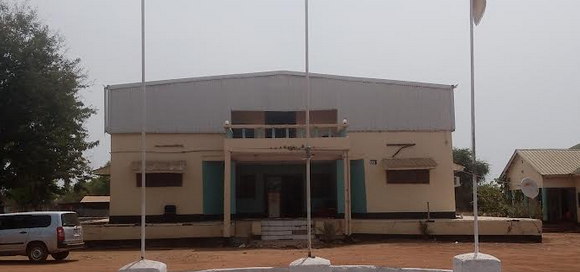Legislators in the Eastern Equatoria State parliament are demanding accountability for over SSP 300 million, which was unspent from the assembly’s last fiscal budget.
The impasse arose when the lawmakers were told that there was no money for them to go on recess and visit their constituencies.
Out of the SSP 796 million annual budget of the house, the lawmakers claim there is a balance of SSP 308,297,684 left, which was meant for them to visit their constituents.
Articles 7 and 8 of the Conduct of Business of the Eastern Equatoria State Legislative Assembly say the emolument for lawmakers will be fixed by law and that they are entitled to transport allowance to reach the constituencies.
Visor Likale Olum, an SPLM-IO lawmaker, told Radio Tamazuj Thursday that this is the right time for the lawmakers to visit the areas they represent, but they have been told there is no money and are now stranded in Torit.
“Parliamentarians are supposed to use this time to go to their people, but unfortunately, we were told there is no money for recess. The law requires us to go and listen to our people so that next time when one is deliberating, you do not imagine things,” he said. “Article 11 stipulates MPs’ emoluments be fixed by law. There is no doubt about money for recess, but now, MPs do not know where their salary is, although the governor issued a provisional order that is unlawful even when the parliament was sitting.”
“Then we have Article 8 that says there should be transport allowance for lawmakers to reach their constituency, but up to today, there is nothing,” he added.
Olum dismissed the claims that there was no money to send them on recess and insisted the assembly’s budget was not exhausted.
“The parliament has a budget of SSP 796,655,372. Salaries took SSP 437,952,336 out of that general budget. This gap dismisses the excuse that there is no money because the balance left after salaries is SSP 308,297, 684,” he charged. “Why do you say there is no money for MPs to go for recess? Who is going to use this money? This money is for the parliament. It is for MPs to reach and interact with their people and come and present their challenges. This is the meaning of government.”
The lawmaker urged Governor Louis Lobong to respect the state parliament as the people’s voice and avoid doing things for his interests.
Meanwhile, the speaker of the house, Severino Maira Janus, when asked about the issue, said the governor told him there is no money.
“It is a matter of understanding. The governor said there is no money, and you cannot force somebody to bring money from anywhere. He will eventually be able to get some resources from somewhere within the state and give it to the assembly to go for recess,” he said. “We are following the law, and the assembly is still very calm, and we do not have any problem. We are only waiting for the governor to close the assembly officially. I am calling on the honourable members to remain calm.”
“The power in this state rests with the people. That is why my people (MPs) have to go and talk to the citizens,” Speaker Maira added.
On behalf of the executive, Information Minister Patrick Oting Cyprian said they were aware of the money required by lawmakers and other financial obligations and that the state’s finance minister was addressing it.
The constitution gives the legislative assembly powers to exercise legislative functions, oversee the executive, and authorize the allocation of resources and revenue.
Eastern Equatoria State, like the rest of the states in South Sudan, is governed by a transitional government formed under the 2018 peace agreement. The state government comprises different political parties.




